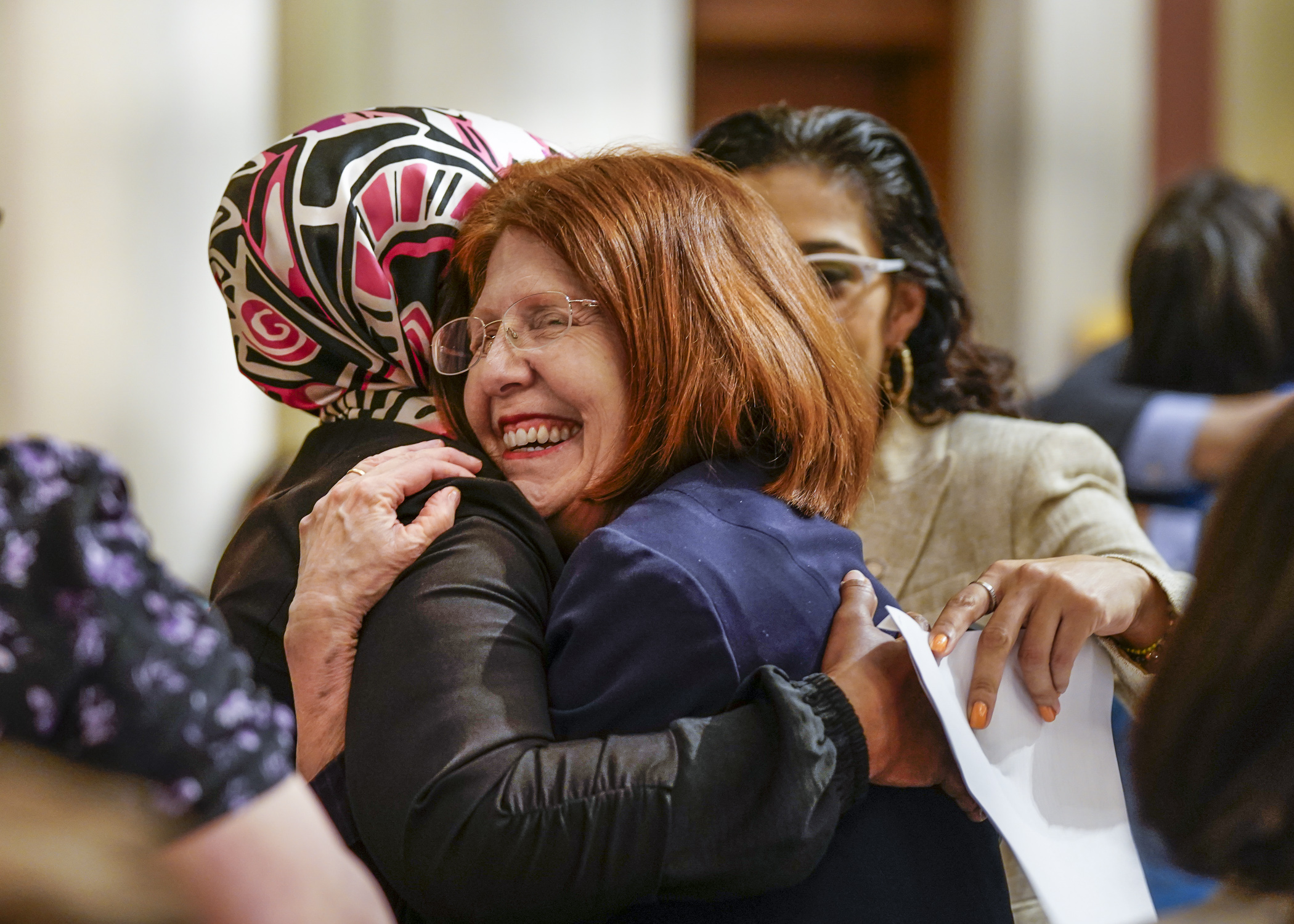$9.3 billion health bill would repeal old abortion laws, address health disparities

It’s not déjà vu. It’s happening again.
From day one to the session’s final, dwindling hours, lawmakers have debated abortion rights.
Monday the discussion largely surrounded repealing old laws limiting abortion access, many of which were already found unconstitutional in court.
The 844-page conference committee agreement on the health finance bill — with some language from the children and families budget — got committee approval and was passed 69-64 by the House. Passed 34-32 by the Senate a few hours earlier, the bill now goes to the governor’s desk.
Sponsored by Rep. Tina Liebling (DFL-Rochester) and Sen. Melissa Wiklund (DFL-Bloomington), HF2930/SF2995* would appropriate $9.34 billion during the 2024-25 biennium, $1.78 billion of which is new spending.
“Many people would tell you that we have the best health care system in the world, and that may be true for some people, but the reality is still that, for many people, health care is too expensive and may even be out of reach all together,” Liebling said.
[MORE: View the spreadsheet and read about the conference committee]
Abortion and reproductive health care
Further protecting abortion access, the top DFL priority received additional attention.
Should it become law, the bill would:
- ensure abortions services are covered by medical assistance;
- broaden MinnesotaCare reproductive health care coverage;
- repeal the “Positive Abortion Alternatives“ program;
- allow abortions to be performed at birth centers;
- remove most of the “born-alive infant“ stipulation;
- stop requiring state-mandated printed information prior to certain reproductive health care services;
- eliminate the informed consent in writing requirement and a mandatory 24-hour waiting period before an abortion;
- permit at least one designated support person for pregnant patients receiving health care services; and
- increase payment rates by 20% for family planning and abortion services, effective on or after Jan. 1, 2024.
Several Republicans voiced strong opposition.
“I will rise in this moment right now to be a voice for innocent lives, and I make zero apology for it,” said Rep. Ben Davis (R-Merrifield).
Rep. Peggy Scott (R-Andover) spoke out against the removal of the “born-alive” provision, saying it’s “not OK when you have a viable baby to just snuff its life out in a very … violent way.”
Financial provisions
Major new spending includes:
- $316.1 million for Great Start compensation support payments;
- $100 million for emergency shelter grants;
- $42.54 million for child care stabilization grants transition payments;
- $30.72 million for extra funding for the Homeless Youth Act;
- $21.18 million for the Healthy Beginnings, Healthy Families program; and
- $4 million for 988 national suicide prevention lifeline grants.
Rep. Dave Pinto (DFL-St. Paul), chair of the House Children and Families Finance and Policy Committee, said some of his committee’s funding went through other bills, but highlighted important components in the health bill, such as the proposed creation of the Department of Children, Youth, and Families.
[MORE: Read about the House-approved health bill and early childhood finance agreement]
Health disparities
Minnesota has some of the best health care in the country.
Part of the aptly named “Minnesota Paradox” includes one of the largest racial health disparities in the nation, specifically for Black residents, despite such high-ranking care overall.
“We have a very fractured health care system that does leave many people behind,” Liebling said. “So, if you need care for mental health concerns, or come from a minority community, or are uninsured, or speak a language other than English, or are undocumented, or many other things, you could very well be left behind. Our bill begins to address all of these things.”
There are many equity provisions in the bill, such as $17.25 million for additional funding for existing tribes in the American Indian Child Welfare Initiative and the creation of the Office of African American Health and the Office of American Indian Health. Each new office would get $2 million.
Under the health bill, undocumented residents meeting income requirements could also enroll in MinnesotaCare.
Other key changes
The Health Care Affordability Board stipulation has been replaced with the Center for Health Care Affordability, which seeks to increase transparency, as well as identify strategies that help reduce waste and low-value care, eliminate unproductive administrative spending, and enhance the provision of effective, high-value care.
The original board would have penalized hospitals for exceeding health care growth targets and was part of why Mayo Clinic threatened to relocate a multi-billion-dollar project. The other being the “Keeping Nurses at Bedside Act,” now carried as a separate bill.
Effective Jan. 1, 2024, the bill would eliminate cost-sharing for medical assistance.
Implementation plans and studies include:
- actuarial and economic analyses for a MinnesotaCare public buy-in implementation plan (the “public option“ could be available to consumers by Jan. 1, 2027, at the earliest);
- a study examining the benefits and costs of a universal health care financing system; and
- an implementation plan for a direct payment system for medical assistance and MinnesotaCare to start the process of de-privatizing public health care programs.
Related Articles
Search Session Daily
Advanced Search OptionsPriority Dailies
Speaker Emerita Melissa Hortman, husband killed in attack
By HPIS Staff House Speaker Emerita Melissa Hortman (DFL-Brooklyn Park) and her husband, Mark, were fatally shot in their home early Saturday morning.
Gov. Tim Walz announced the news dur...
House Speaker Emerita Melissa Hortman (DFL-Brooklyn Park) and her husband, Mark, were fatally shot in their home early Saturday morning.
Gov. Tim Walz announced the news dur...
Lawmakers deliver budget bills to governor's desk in one-day special session
By Mike Cook About that talk of needing all 21 hours left in a legislative day to complete a special session?
House members were more than up to the challenge Monday. Beginning at 10 a.m...
About that talk of needing all 21 hours left in a legislative day to complete a special session?
House members were more than up to the challenge Monday. Beginning at 10 a.m...